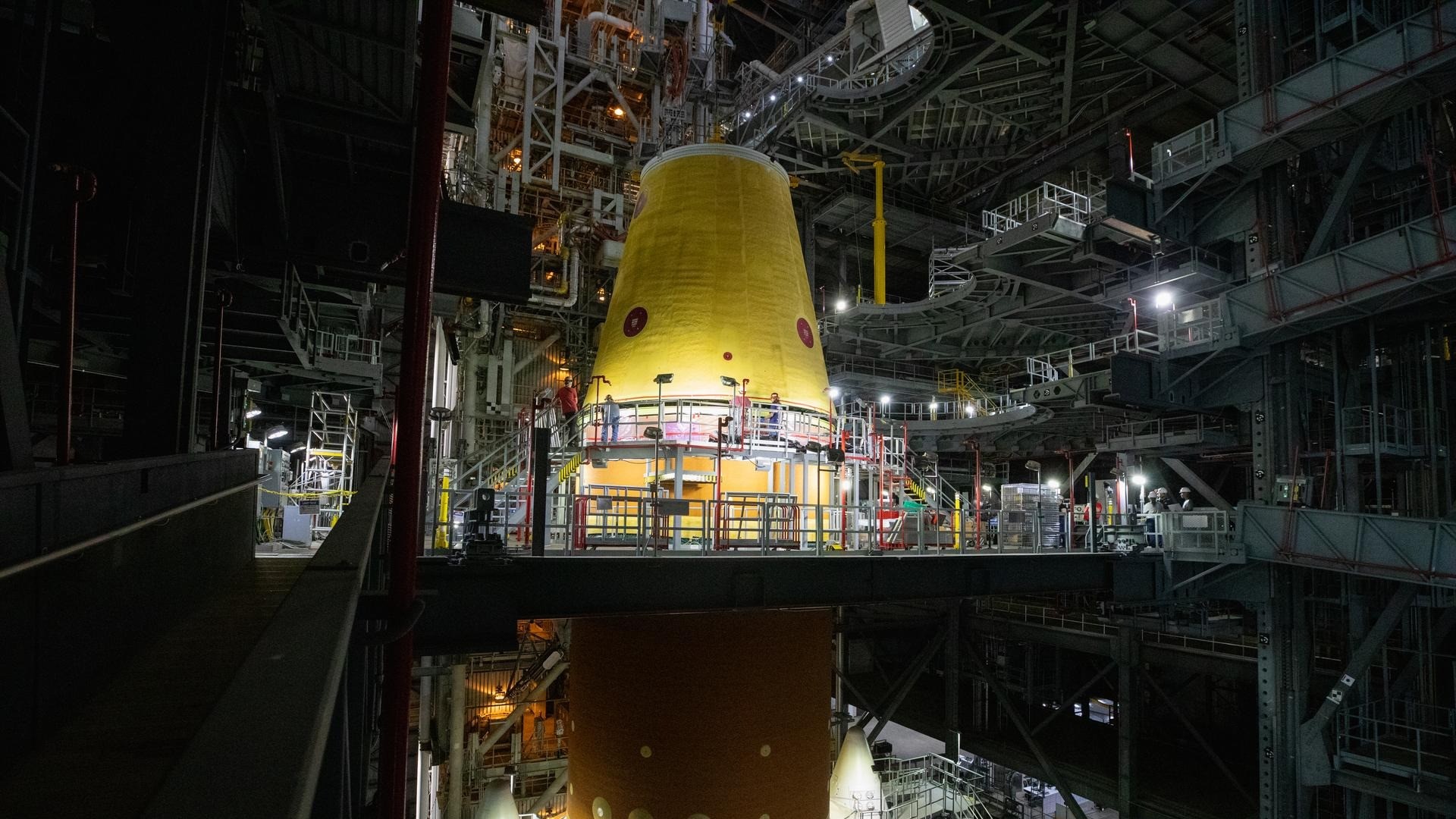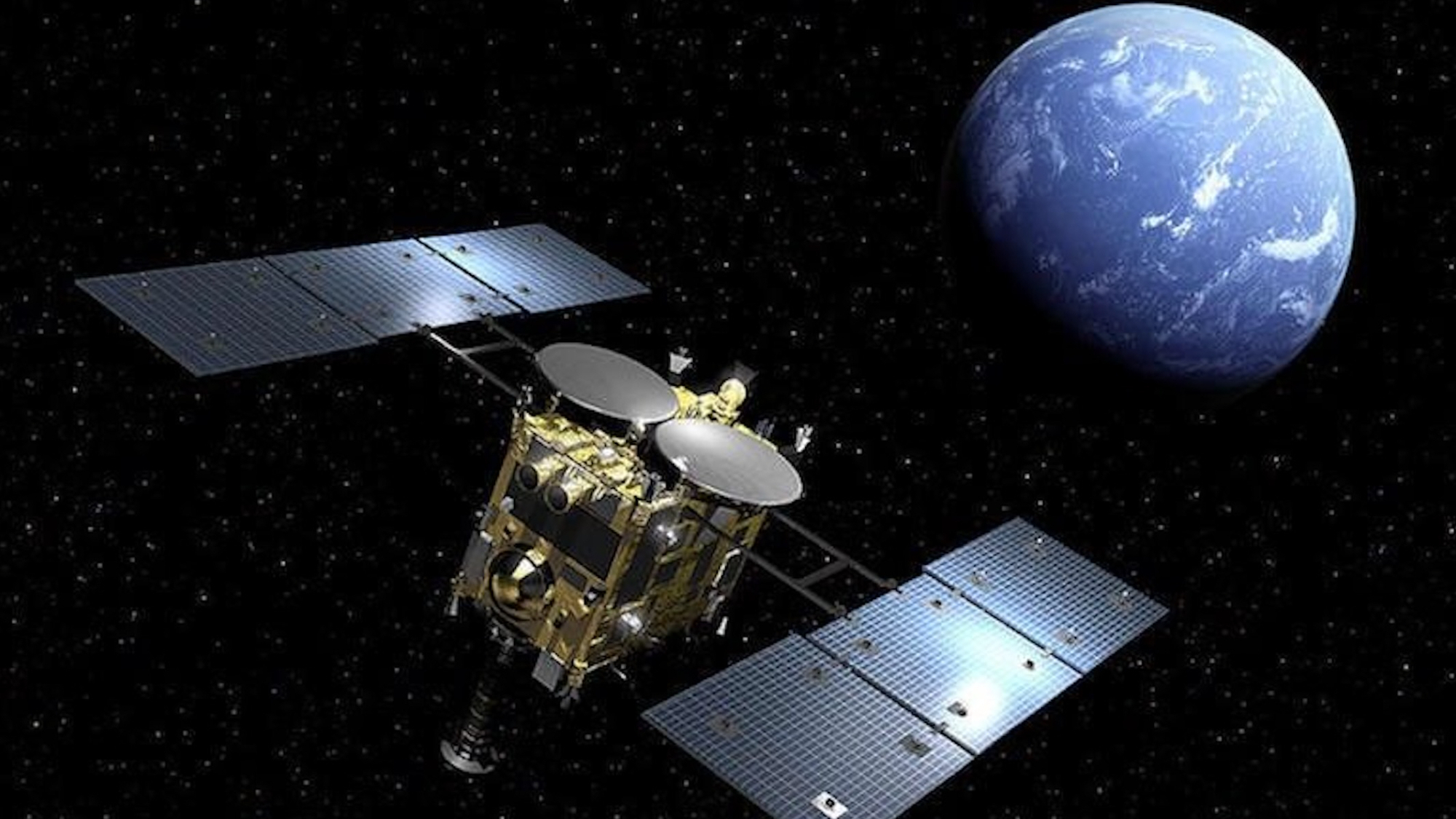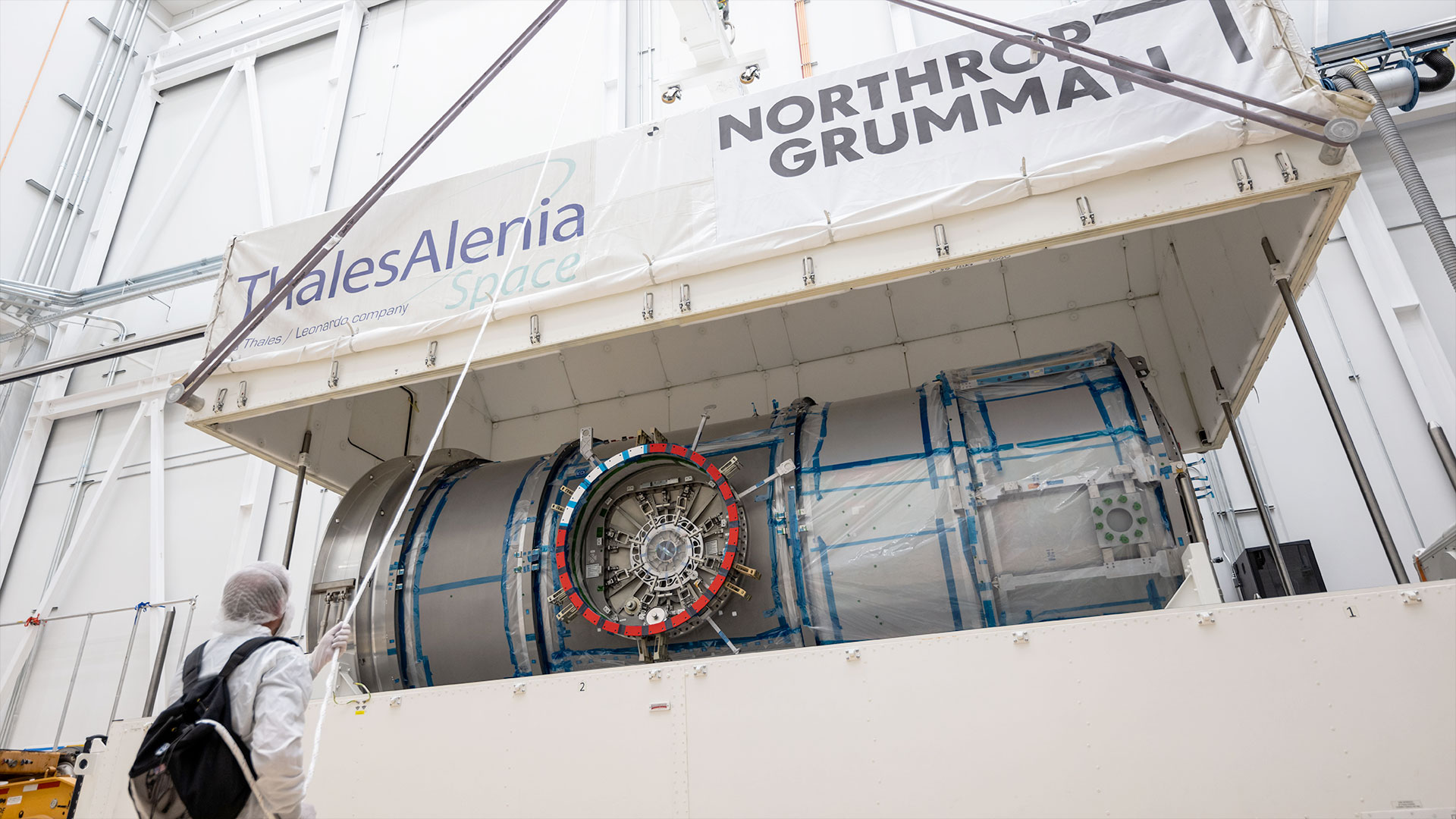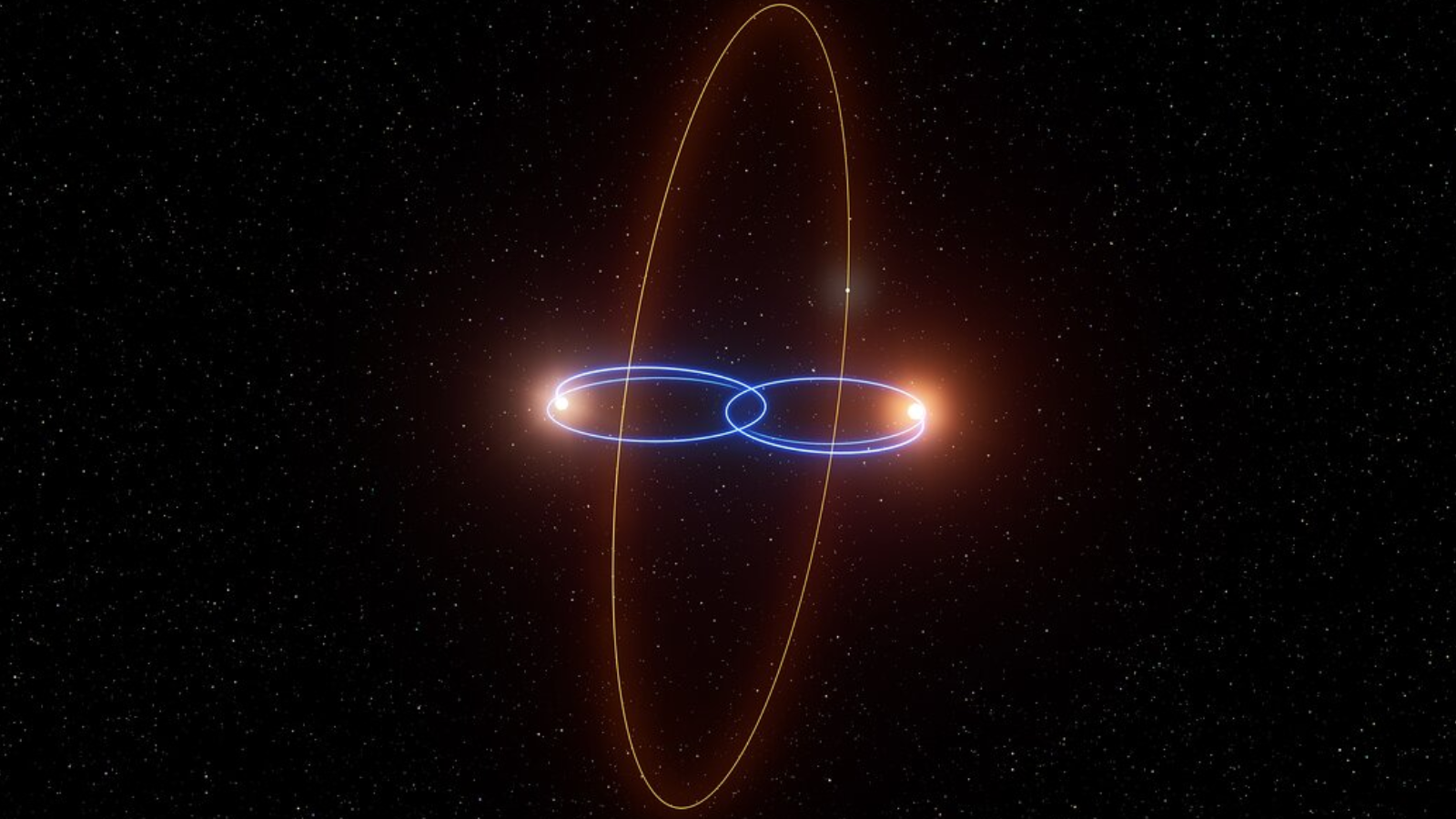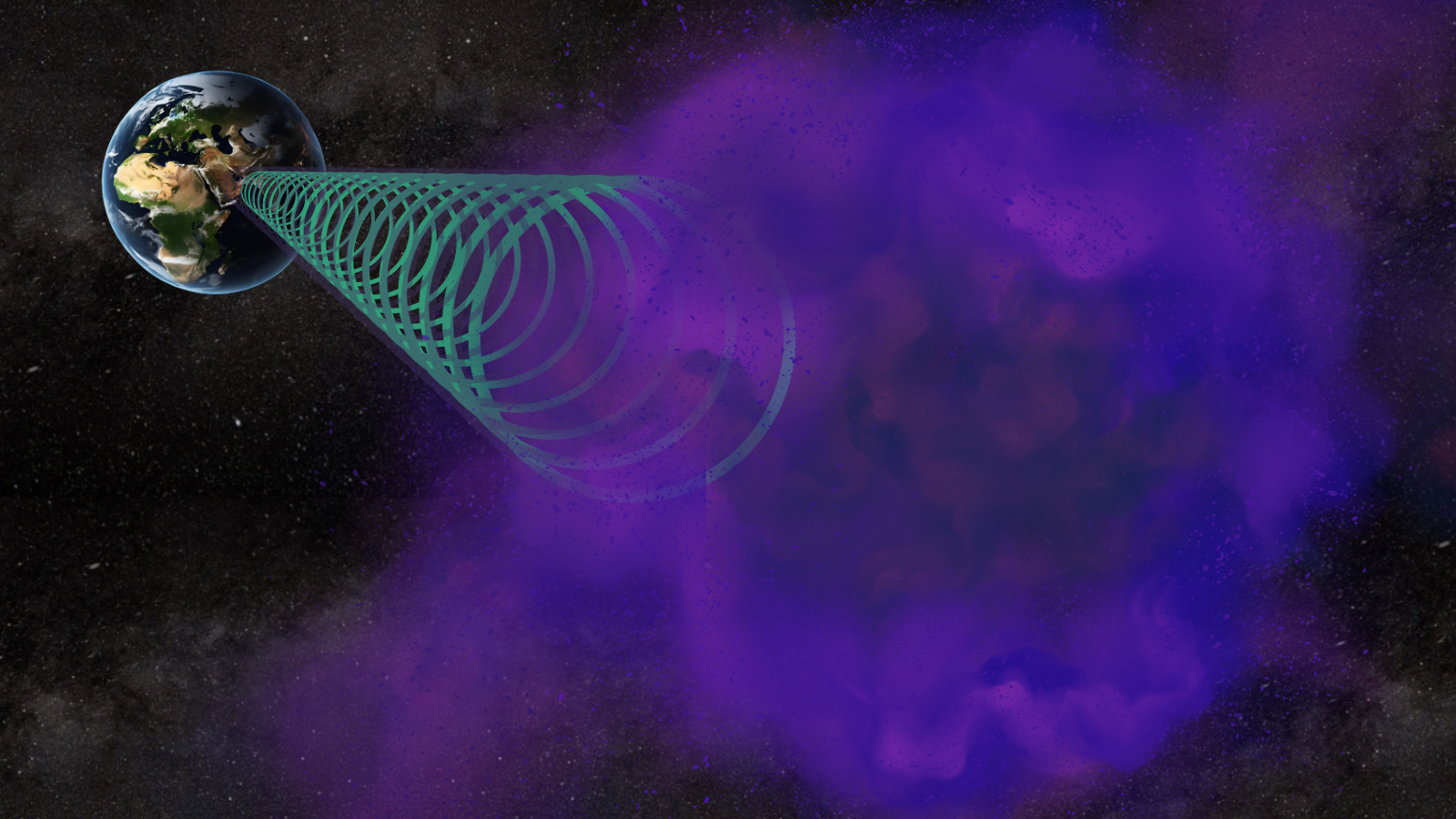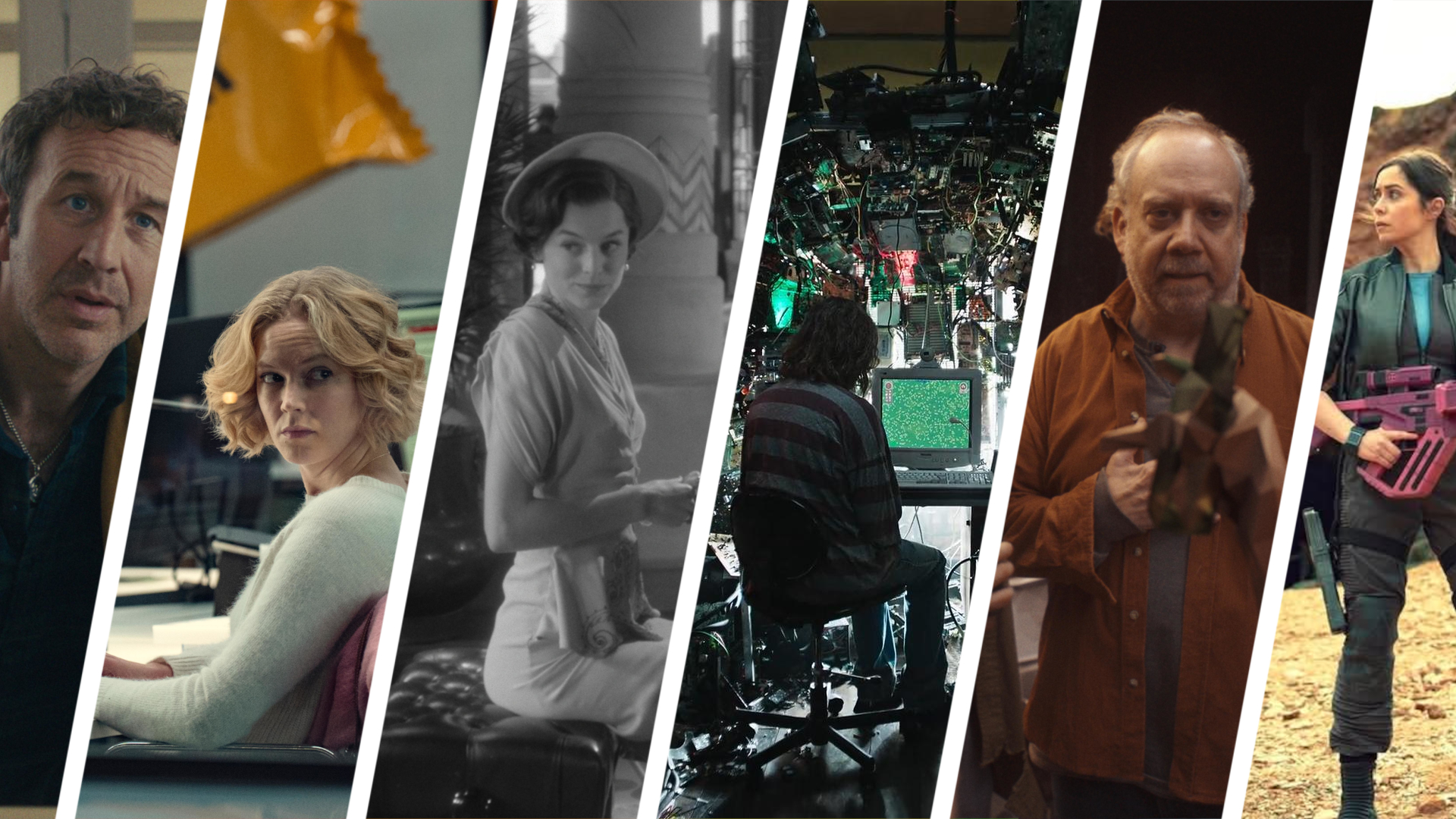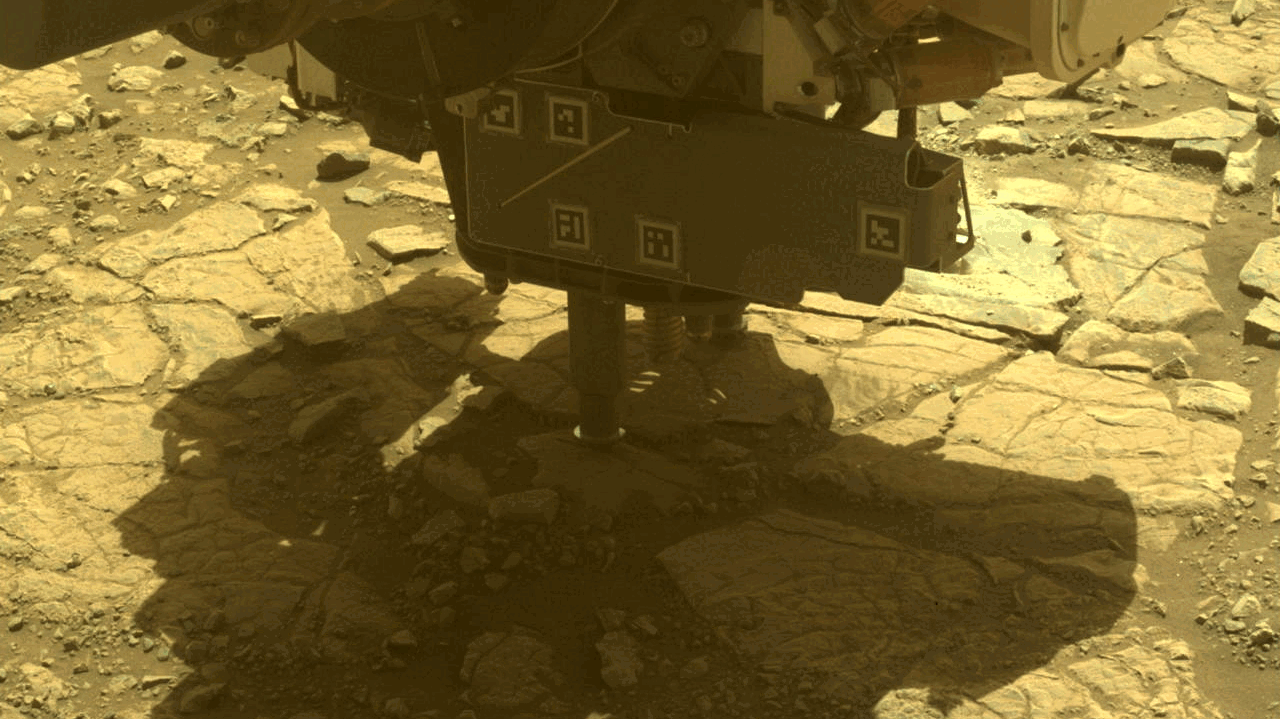Are We Alone? 'Ad Astra' Star Brad Pitt Talks Aliens, Science Fiction and More
Brad Pitt says his new space movie "Ad Astra" won't have a clear position on whether humanity is alone in the universe.
The Hollywood actor, who portrays astronaut Major Roy McBride in"Ad Astra," talked about the possibilities of aliens in a Washington Post panel discussion Monday (Sept. 16) discussing the new film and its portrayal of space exploration.
Pitt said there is a quote about aliens attributed to science fiction author Arthur C. Clarke, which goes something like, "Two possibilities exist: Either we are alone in the universe or we are not. Both are equally terrifying."
Watch: See a Sneak Peek of 'Ad Astra' Moon Action!
Video: Haunting 'Ad Astra' Score from Dev Hynes of Blood Orange (Exclusive)
That's not something Hollywood usually portrays in its films, Pitt explained.
"We're usually dealing with benevolent aliens imparting wisdom," he said, or aliens who want to destroy humanity, forcing people to "stand up and fight."
Watch the full "Ad Astra" event with the Washington Post below.
But "Ad Astra" is a film that shows deep exploration of space without much discussion of aliens. The film certainly touches on many other relevant themes, Pitt and writer-director James Gray pointed out — such as the possible rise of piracy as many entities explore the solar system, or the need for individuals to make connections with others to make life bearable.
Get the Space.com Newsletter
Breaking space news, the latest updates on rocket launches, skywatching events and more!
Pitt added that the goal of the production team was to create a science fiction film that would complement the vast library of space movies already available. "We hope to add something different, instead of repeating," he said.
Watch: 'Ad Astra' Star Brad Pitt Quizzes NASA Astronaut About Life on Space Station
Real-life space inspiration
When starting to create the movie, Gray said "Ad Astra" would be a "science feature fact" film and that he would endeavour to make it the most realistic space movie yet created. He admitted he had to adjust that vision as production continued. "A lot of times when you start working on a project, you start to say unbelieveably dumb things," he joked.
Instead, Gray worked to create a world that may not be fully realistic, but was plausible. Part of his reasoning was if he went too far down the realism route, moviegoers would not be satisfied because Hollywood has created certain tropes.
One thing he was insistent on, however, was showing that sound does not carry in space — a rule that many films (like the "Star Wars" canon) gladly violate. He also insisted on using staged sets instead of computer graphics where possible, forcing Pitt to dangle from wires to get certain shots done.
"You have to suffer a little bit," Pitt joked of the creative process.
Countered Gray, "Actors are very sensory creatures, and to put an actor in a green box, that doesn't help. It was really for the performance."
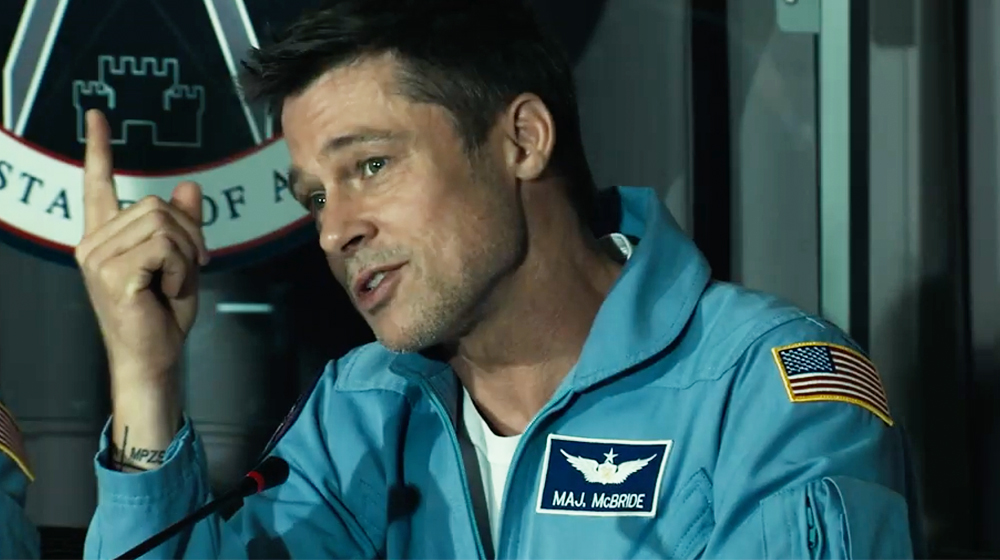
Gray recalled being holed up in a corner of his house studying transcripts and biographies of astronauts from the 1960s, but he added that much of the knowledge needed to be "thrown away" so as not to bore viewers — he mentioned Apollo 11 moonwalker Buzz Aldrin's Ph.D. dissertation on orbital mechanics as an example. He showed his knowledge of space history in his answers, including a discussion of the missions of Apollo 12 (which landed on the moon in November 1969) and Charlie Duke's exploits on Apollo 16 (which landed on the moon in 1972.)
Gray wanted to create a story, he said, that seemed like it could show space exploration 50 years in the future. With him on the Washington Post panel were two officials from NASA talking about how the space agency is preparing for crewed landings in 2024.
Planetary geologist Sarah Noble discussed how astronauts would use the local resources at the south pole of the moon to create a sustainable presence on the surface, while space technologist Lindsay Aitchison discussed the newest generation of lunar spacesuit — one that will be more flexible than the ones the Apollo astronauts used, she said.
Inspiration from mythology
Gray's goal in creating "Ad Astra" – which he started in 2011 – was to do a "mythic story in outer space," echoing some of the themes of the space movie (based on an Arthur C. Clarke book) "2001: A Space Odyssey" (1968). Because Gray was so interested in myth, he found himself reading literature professor Joseph Campbell's "Hero of a Thousand Faces" (1949, Pantheon Books) to better understand the classic structure of "the hero's journey," or the cycle of milestones a hero goes through in classical mythology during the telling of a story. Campbell, Gray pointed out, greatly influenced filmmaker George Lucas when Lucas created the original "Star Wars" films in the 1970s and 1980s.
Gray added that one thing he loved about "2001" was its way of skirting around the alien question. At one point, an astronaut crew finds a black slab on the moon, which looks like a bit of "60s minimalist sculpture," he said. "You can project anything you want on it … he [director Stanley Kubrick] pitches it like a fable."
The director, joking that "everyone steals from everything," also said he was influenced by Kurt Vonnegut's "The Sirens of Titan" (1959, Delacorte). The story discusses how spacefarers went "ever outward, ever outward" and found only three things in space: "empty heroics, low comedy and pointless death."
Gray added that while "Ad Astra" is not anti-exploration, he felt that the point of the movie was to think about making connections with each other as humans.
"You can look out as far as you want – and we should — but in the end, you can't really comprehend the infinite, the endless void," he said.
- Epic 'Ad Astra' Trailer Features Moon Buggy Chase and Outer Solar System
- 2nd 'Ad Astra' Trailer Teases More Spectacular Sci-Fi Starring Brad Pitt
- 1st 'Ad Astra' Trailer Hints at Interplanetary Action with Brad Pitt
Follow Elizabeth Howell on Twitter @howellspace. Follow us on Twitter @Spacedotcom and on Facebook.
Join our Space Forums to keep talking space on the latest missions, night sky and more! And if you have a news tip, correction or comment, let us know at: community@space.com.

Elizabeth Howell (she/her), Ph.D., was a staff writer in the spaceflight channel between 2022 and 2024 specializing in Canadian space news. She was contributing writer for Space.com for 10 years from 2012 to 2024. Elizabeth's reporting includes multiple exclusives with the White House, leading world coverage about a lost-and-found space tomato on the International Space Station, witnessing five human spaceflight launches on two continents, flying parabolic, working inside a spacesuit, and participating in a simulated Mars mission. Her latest book, "Why Am I Taller?" (ECW Press, 2022) is co-written with astronaut Dave Williams.



